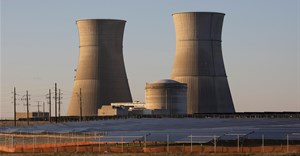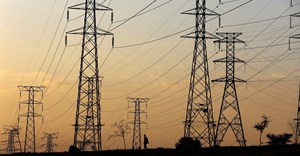SA could boost African economies through nuclear knowledge sharing

The country could unlock immense value and revenue through providing technical and consulting services, much like India and Russia are cooperating in building nuclear power facilities in other countries, says Andrei Vinkov, chairman of the corporate governance committee at Rosatom,
His view comes on the back of energy minister Gwede Mantashe's speech at the International Atomic Energy Agency (IAEA) conference last year where he noted that nuclear had a role in furthering not only clean energy initiatives, but also many other sustainable development programmes that could solve African challenges.
“Despite how people may feel about Russia’s participation in their national programmes, the fact remains – Russia will continue playing a major role in the global nuclear industry both as a supplier of nuclear technology and as a contributor to national economies by transferring knowledge and business opportunities to local soil. Nuclear cooperation with Russia significantly increased Indian manufacturing content and is a boost for the domestic industry," he says.
Indo-Russian cooperation
Gradually, over the decades of India’s nuclear development programme, the national industry has acquired capabilities to develop major reactor components, sub-systems, and assemblies. The first two units of the Indo-Russian Kudankulam Nuclear Power Plant (KNPP) in Tamil Nadu were commissioned in 2014 and 2017, respectively, and the construction work on four more units of 1,000MW each is currently underway.
SK Jain, the former chairman and managing director of the Nuclear Power Corporation of India Limited (NPCIL), said all the civil works for erection were handled by the Indian side, while the Russians provided the technical expertise in terms of the warranties and guarantees. Since then, India supplied the entire electrical system as well as the water system of the plant.
Jain adds that a crucial element of this nuclear cooperation with Russia is the understanding that it would significantly increase Indian industrial manufacturing capacity in sophisticated technology.
“While critical components such as reactor pressure vessels, coolant pumps and steam generators, among others, are supplied by Rosatom companies, the share of Indian industry in manufacturing equipment in the Turbine Island and in the rest of the NPP has always been at a high level ever since the construction of the first unit at Kudankulam,” Jain says
The next step in the Indo-Russian nuclear cooperation is joint projects in other countries. The first initiative is in Bangladesh. With the ongoing construction of the first NPP, in which Rosatom is also the equipment supplier and technical consultant, India and Russia signed a tripartite agreement in 2018 to provide support to Bangladesh in its path to nuclear.















